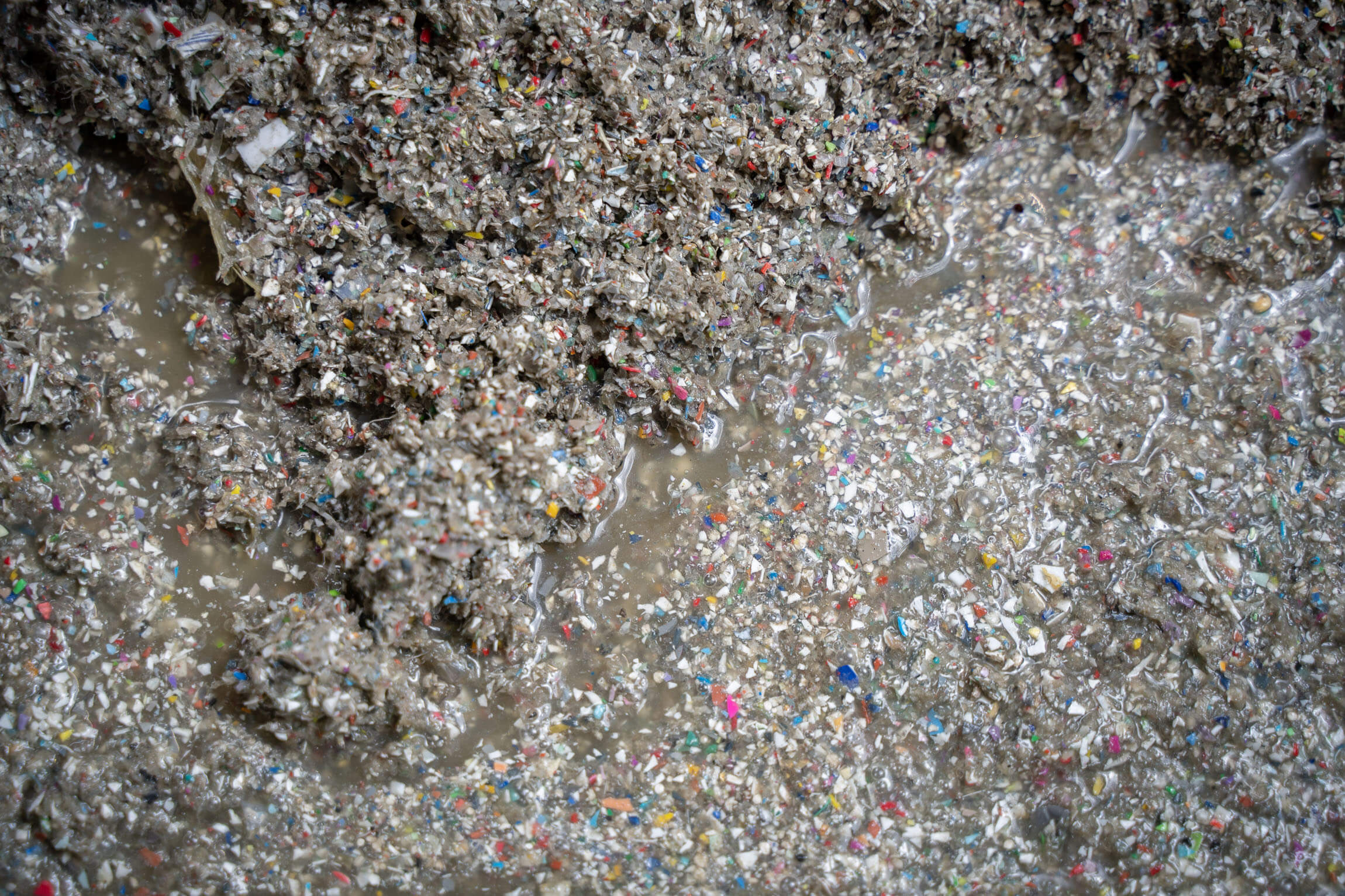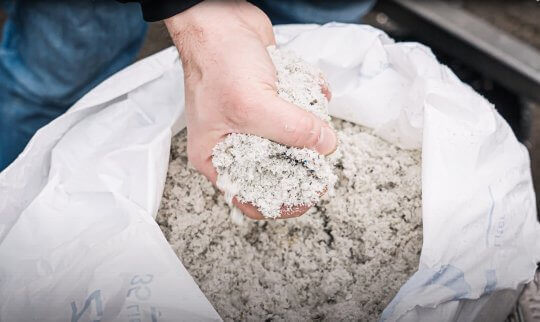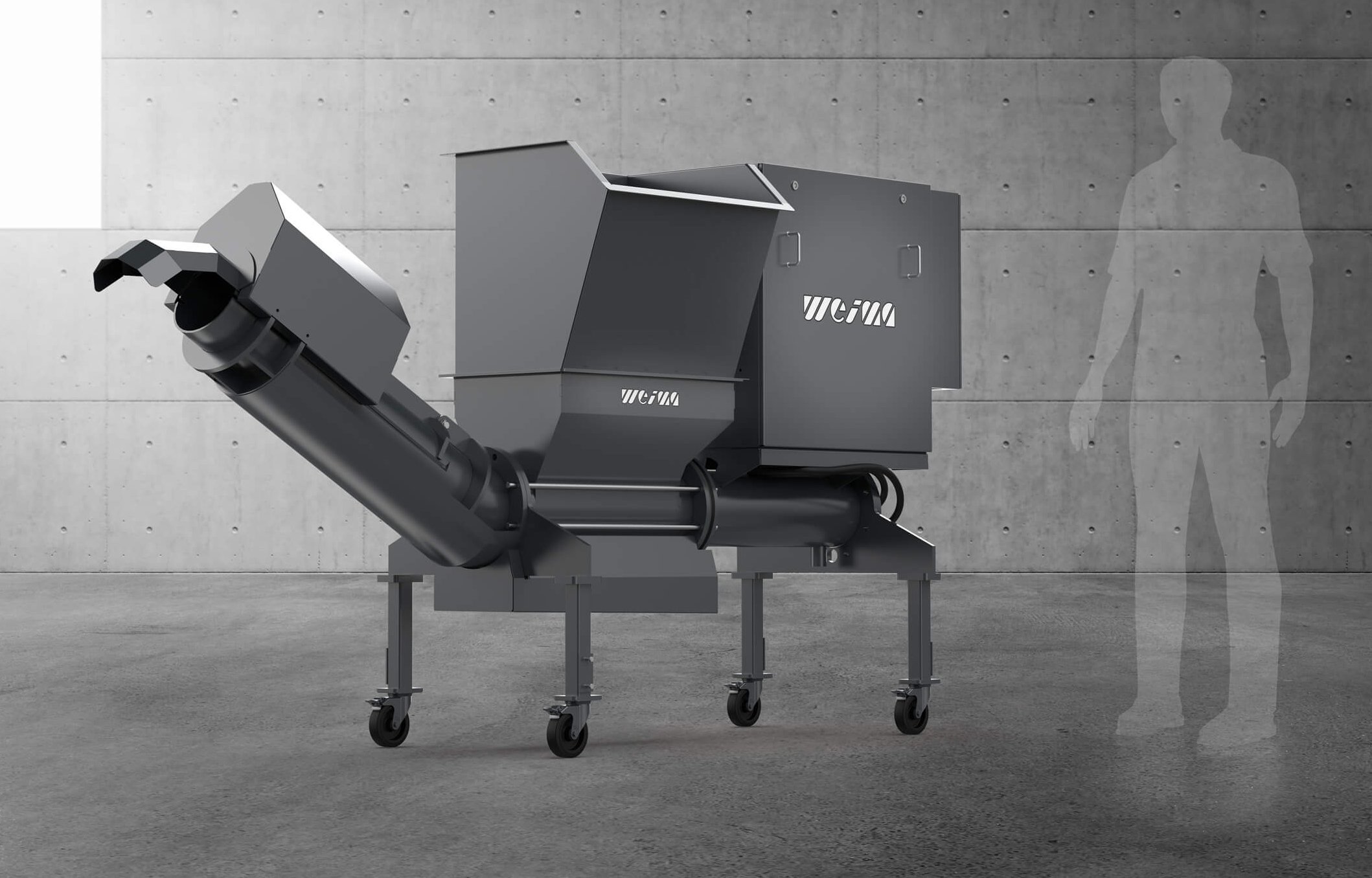
Presses for dewatering of washing line plastic rejects | fines
Plastics recycling usually begins with the shredding of waste, followed by washing. This inevitably produces wet fine fractions or rejects that are unsuitable for the next process steps of recycling (for example extrusion) – and the majority are disposed of.
When it comes to disposal, weight is a major factor in determining costs. So the drier the plastic residues are, the cheaper it is. Since there is usually still a lot of heavy liquid adhering to the material, dewatering helps. With presses from WEIMA you separate plastic from liquid in one step. The result is almost dry pressed pellets/discs. A real no-brainer for recycling companies and waste recyclers.
Presses for dewatering of washing line plastic rejects | fines Presses for dewatering of washing line plastic rejects | fines Presses for dewatering of washing line plastic rejects | fines
These drainage presses are currently particularly popular.
Washing plants plastic recycling rejects and fines dewatering
WEIMA presses for cost-effective disposal
Dewatering of plastic parts and rejects with WEIMA press
During wastewater treatment, smallest plastic particles are separated. These are fed into a WEIMA C.200 dewatering press.
By means of hydraulic pressure the particles are dewatered and pressed to minimize disposal costs.
Saving water.
For cleaning plastic flakes with a washing system (for example, pre-wash systems, hot-wash systems, or friction washers), a lot of water is needed, which must be treated regularly. Depending on the application, it is also necessary to control the lye content. In many systems, this is already done fully automatically.
In general, modern washing systems are highly efficient. To further optimize the water cycle, we recommend the use of our WEIMA presses. With their help, liquid adhering to rejects and fines can be separated and thus recycled – so that valuable water can remain in the cycle as long as possible.
Reduce transportation and disposal costs.
The calculation is simple: Every liter of water that is literally squeezed out of the plastic fine fraction with WEIMA presses reduces the waste weight. And since the disposal costs are significantly influenced by the weight, the dewatering and compaction saves cash.
Draining of post-consumer plastic fine parts with a WEIMA C.200 Duo press @ Stiphout Plastics
A WEIMA C.200 Duo drainage press drains and compresses plastic fine parts from HDPE and PP recycling. During the washing of the recycling process, a lot of small plastic fine parts and fractions are produced.
Advantages compared to screw presses | screw compactors
Compact dewatering presses from WEIMA work with a hydraulically movable cylinder instead of a classic transport screw. This has a decisive advantage: wear and the associated maintenance costs are reduced to a minimum. So if you are looking for a simple and at the same time robust solution for dewatering plastic waste after the washing process, you will find it with WEIMA cylinder presses.
Request Reject Press now
Request offer

Duo version for even more throughput.
For particularly high residual material quantities, WEIMA optionally offers machines in duo design. Here, two presses are combined with each other. This increases the throughput rate significantly.
Trial pressing – see for yourself!
We are happy to offer you the possibility to simulate your application in our facilities as realistically as possible. You have the possibility to send us your material or visit us directly in Abstatt.
Ask for an appointment now
Alternatively you can send us material for testing. Click here for the form.

Try before you buy – Material testing at our showrooms
Special offer
Arrange a free material trial today.
Free material trial















